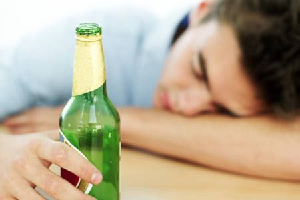 Many people I work with have often been successful at maintaining some sort of long-term sobriety/abstinence from alcohol or drugs. If you participate in AA/NA, getting your one month chip is often described as exhilarating. There is a boost in self-confidence and hope in one’s ability to regain control of one’s life. But something happens after the one year chip. All of a sudden chips stop coming. You don’t get as much attention and support anymore as you did in the beginning. All of a sudden you are “cured” and/or you are supposed to know how to do this on your own.
Many people I work with have often been successful at maintaining some sort of long-term sobriety/abstinence from alcohol or drugs. If you participate in AA/NA, getting your one month chip is often described as exhilarating. There is a boost in self-confidence and hope in one’s ability to regain control of one’s life. But something happens after the one year chip. All of a sudden chips stop coming. You don’t get as much attention and support anymore as you did in the beginning. All of a sudden you are “cured” and/or you are supposed to know how to do this on your own.
How are you supposed to know when you’re in “the clear”? Are you ever? Addiction is a relapsing disease. This means relapse is part of recovery and instead of refusing to accept this fact, it is important to put more effort into understanding relapse, warning signals and ways to prevent it.
Here are some signals I have noticed:
- Experiencing Withdrawal: You start having problems with one or more of the following; thinking difficulties, emotional overreaction problems, sleep disturbances, memory difficulties, sensitivity to stress, etc.
- Avoidance and Defensive Behavior: You start avoiding people who you know will give honest feedback and/or you start becoming irritable and angry with them.
- Being in denial: You stop telling others what you’re thinking/feeling and start trying to convince them (and yourself) that everything is all right, when in fact it is not.
- Building crisis: You start to notice that ordinary, everyday problems become overwhelming often because you perceive them as insurmountable.
- Feeling stuck: You start believing that there is nowhere to turn. You feel trapped and sometimes refuse to problem-solve.
- Becoming Depressed: You mourn the loss of alcohol/drug and you feel the sadness and grief. You naturally miss it. But you start to rationalize your future actions based on perceived inability to handle the sadness.
- Urges and Cravings (Thinking About Drinking/Using): You start to think that alcohol/drug use is the only way to feel better. You start coming up with justifications to drink/use and convince yourself that using is the logical thing to do.
- Turning to behavioral, non-substance addictions: You start using one or more of the following- food, sex, caffeine, nicotine, work, gambling, etc. often in an out of control fashion.
As you may notice the list above has much to do with where you are mentally than anything else. I like to refer to this “psychological space” you get into right before a relapse as “the danger zone”. Many times you know you will relapse, you just ignore that fact and either convince yourself that using once won’t make a difference or you set yourself up to fail intentionally.
If you want to avoid relapse when you are in “the danger zone” you want to look out for a few things that may potentially make the situation worse.
- Being in the presence of drugs or alcohol, drug or alcohol users, or places where you used or bought chemicals.
- Feelings we perceive as negative, particularly anger; also sadness, loneliness, guilt, fear, and anxiety.
- Positive feelings that make you want to celebrate.
- Boredom.
- Getting high on any drug.
- Physical pain.
- Dwelling/fantasizing on getting high.
- Suddenly having a lot of cash.
- Using prescription drugs that can get you high even if you use them properly.
- Believing that you no longer have to worry or loss of vigilance. A.k.a ‘I can use once” attitude.
Don’t be afraid to ask for help. And if you do happen to relapse, remember that relapse doesn’t happen because of who you are as person. What I mean by this is that there is no chronic “relapsers”, there is chronic relapse behavior patterns. Different choices lead to different results. Once the pain is gone away, we tend to forget it. Remember the pain and the hurt. Remind yourself why you decided to quit to being with. Many people will say that if you “mentally” relapse you have already relapsed “so might as well get high”. This is not true. Wanting to get high is not the same thing as actually doing it.
What have you learned from your relapses that have been helpful?
© Copyright 2011 by Elvita Kondili, LPC. All Rights Reserved. Permission to publish granted to GoodTherapy.org.
The preceding article was solely written by the author named above. Any views and opinions expressed are not necessarily shared by GoodTherapy.org. Questions or concerns about the preceding article can be directed to the author or posted as a comment below.
